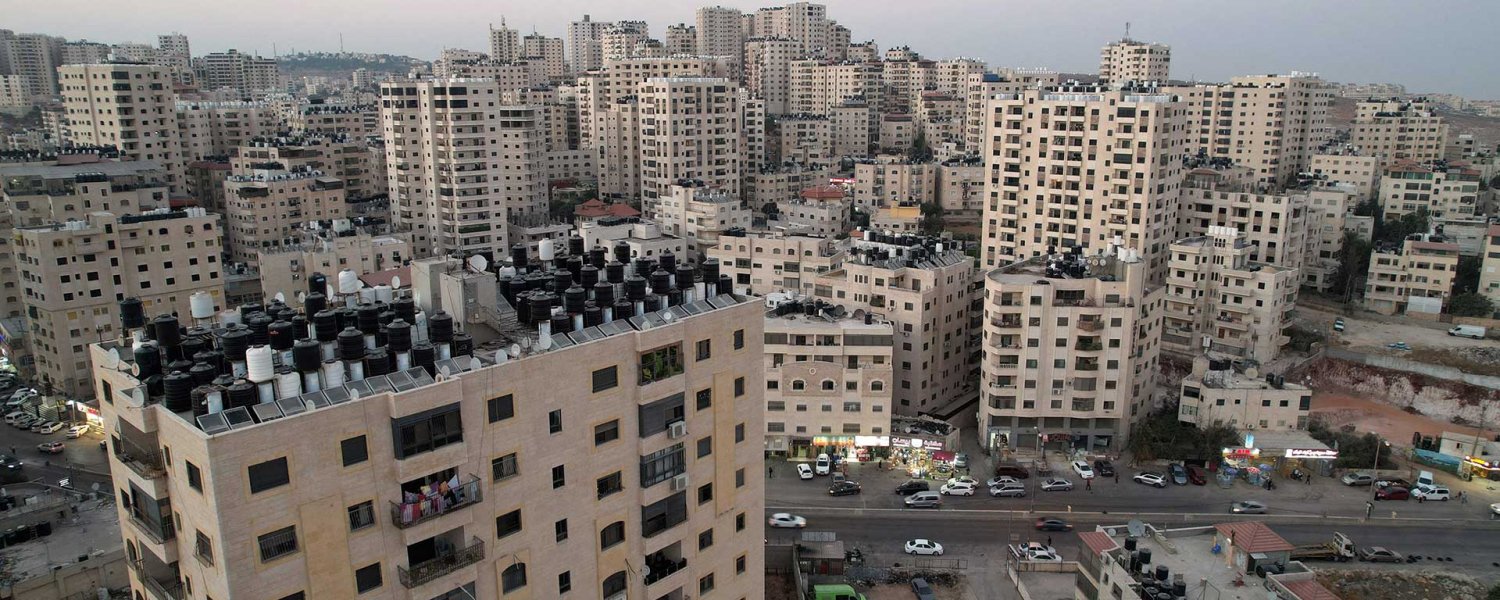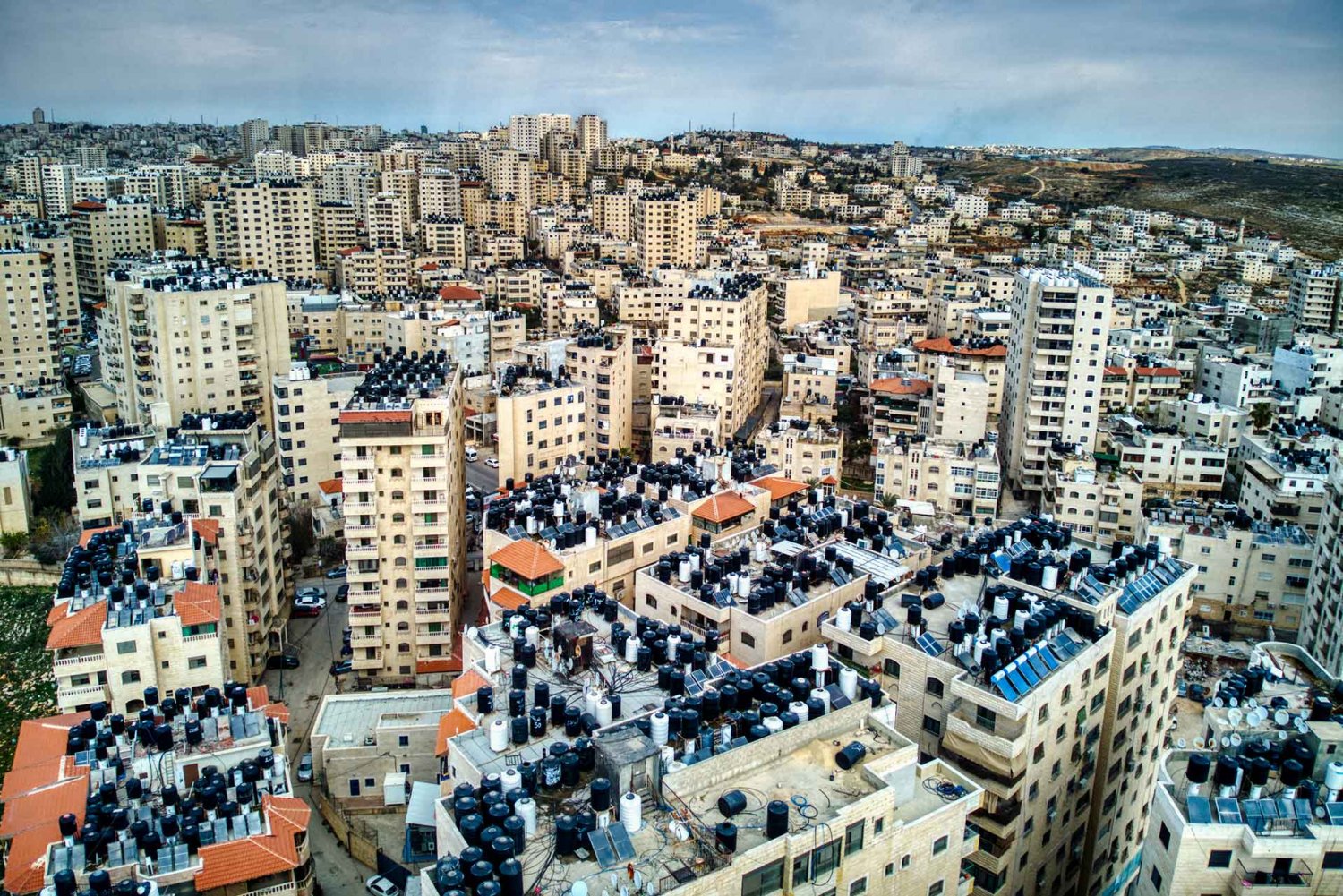Mohamad Eweidat, 45, a resident of the Palestinian neighborhood Kufr ‘Aqab north of Jerusalem, was sweating profusely. “Our lives are turning into hell during the summer months, and the problem is even more compounded when the water is cut off; we only get water two days a week,” Mohamad told Jerusalem Story.1 Even on days when water is not cut off, it isn’t possible to fill the reserve tanks on building rooftops; there just isn’t enough water.
The black-and-white plastic water tanks on building rooftops extend as far as the eye can see. The neighborhood of Kufr ‘Aqab falls within the Israeli municipal boundaries of Jerusalem, but it was severed from the city when Israel built the Separation Wall. It has become a haven to so many people who want to retain their Jerusalem residency but can’t afford the high prices of living closer to the city center, as well as to those who need to travel regularly to Ramallah and don’t want to deal with the hassle of passing the Qalandiya checkpoint. The unregulated construction of high-rise apartment buildings has put the entire area in a checkpoint zone. “My water tank can take 1,500 liters of water, but during the two days that we get water, the tank barely registers a few centimeters. If I allow my children to wash their hands regularly, we would quickly run out of water,” he said.



